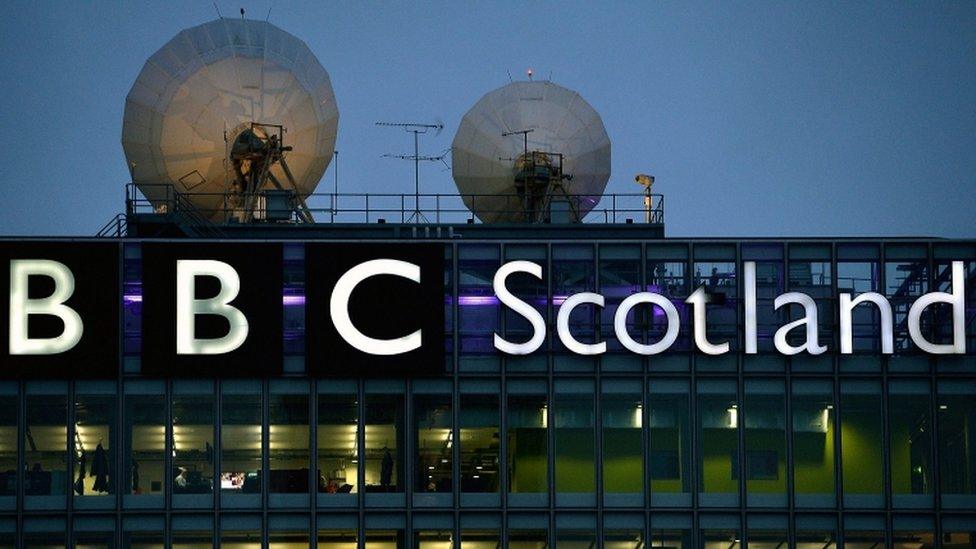Westminster culture committee backs 'Scottish Six' plans
- Published
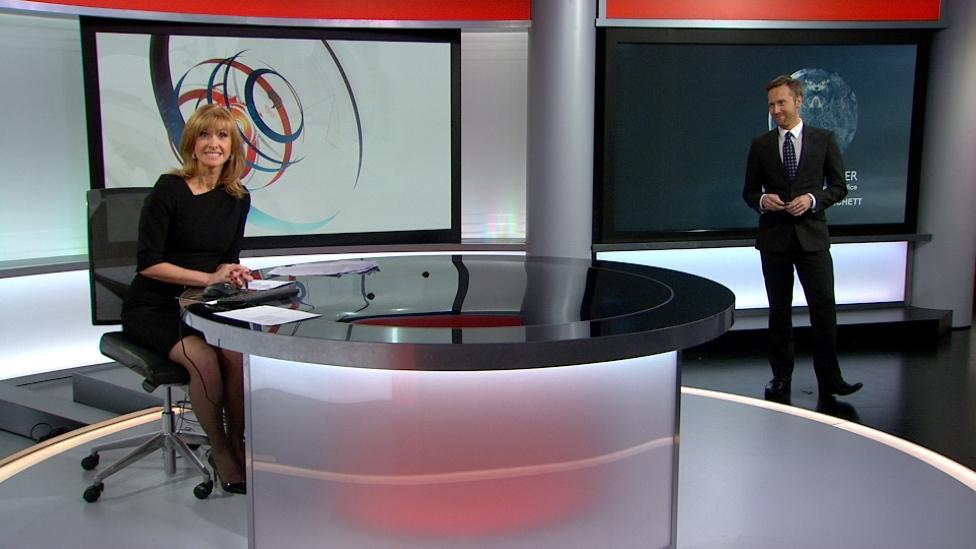
The committee want to see a Scottish Six programme fully anchored from Scotland
The BBC should press ahead with plans for an hour-long "Scottish Six" TV news programme, Westminster's culture committee says.
BBC Scotland has produced pilots for a programme which could replace Reporting Scotland and the Six O'Clock News in Scotland.
MPs said it was "perfectly reasonable" for editorial decisions on broadcasts in Scotland to be made in Scotland.
A BBC spokesman said it was "exploring a number of possible formats".
But he underlined the importance of the broadcaster "remaining free from undue political interference".
The proposed changes to programming are part of the BBC's charter review plans, which will decide the direction of the corporation for the next decade.
They have been drawn up in response to criticism that the BBC's main Six O'Clock News programme often features stories on devolved areas such as education and health which are not relevant to Scottish audiences.
A series of different formats have been proposed for the Scottish Six, with three different pilots initially made.
MPs said any new programme should be "anchored in Scotland, with a running order of Scottish, UK and international stories based on news merit, drawing on all the BBC's facilities and broadcast from Scotland".
One proposal was to have segments of UK or international news presented from London, with Scottish stories anchored in Glasgow.
However, the committee said having two studios was a "needless extravagance", with a danger it would "look patronising to a Scottish audience".
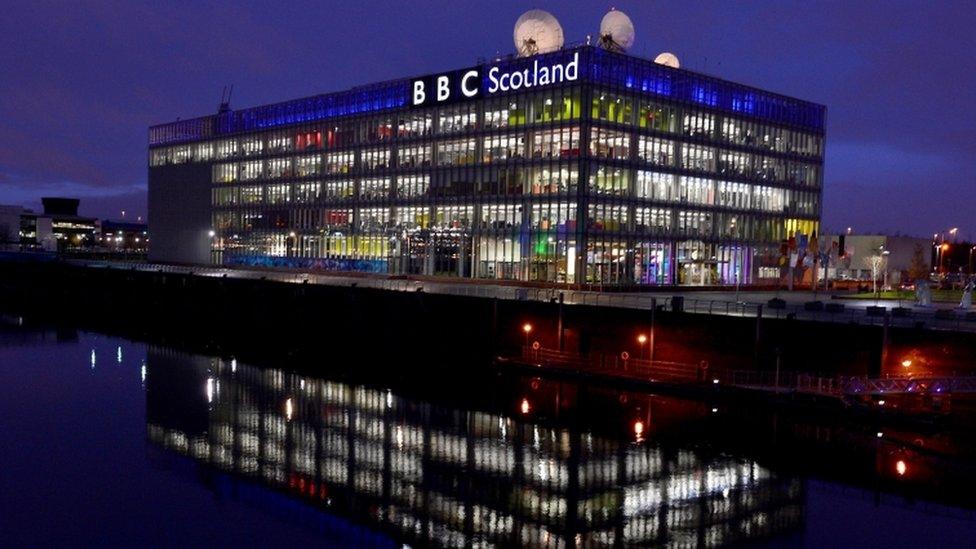
The idea of a Scottish Six has been a long running question in Scotland
A Scottish Six has been a long-running idea within Scottish broadcasting, with previous proposals being ruled out in 2006.
The Scottish government has led calls for a more Scottish-focused six o'clock broadcast.
And an inquiry by Labour peer Lord David Puttnam has also recently backed the idea of a Scottish Six, along with more devolution in BBC budgets.
The culture, media and sport committee, external, which is made up of of six Conservative MPs, four from Labour and one SNP - East Dunbartonshire MP John Nicolson - made a series of recommendations for reform of the public service broadcaster.
And they voiced fears the existing structure of evening news broadcast in Scotland was not always relevant to local viewers.
'Made in Scotland'
Damian Collins, acting chair of the committee, said: "The six o'clock news in Scotland is currently split into two.
"The main news stories, whether international or relating to the UK [in whole or in part], are presented from London while Scottish news is presented from Glasgow.
"In the post-devolution era, this can lead to network news programmes transmitted from London leading on several purely English stories - for instance on health, justice or education.
"The BBC has already acknowledged that there is dissatisfaction with this situation. However, we believe that it is perfectly reasonable for editorial decisions on the running order for television news broadcasts in Scotland to be made in Scotland, and broadcast from Scotland, as they are already for radio."
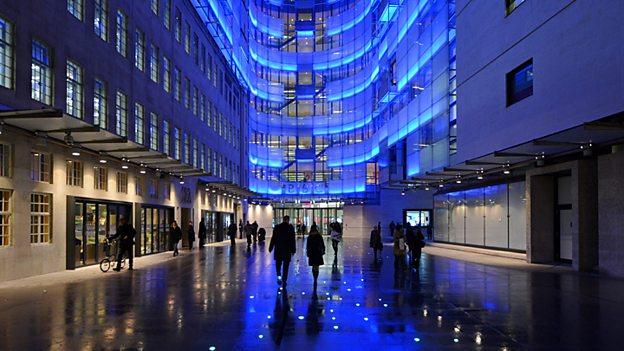
The committee also want to see more transparency over the salaries of high-earning BBC staff
The committee's report said that BBC Scotland's "failure to create and sustain a popular news-related current affairs programme" - the current Scotland 2016 programme is to be axed later in the year - had led to "a perception that the BBC has failed to accommodate news of particular importance to Scotland".
The committee's report also says:
The BBC should publish details of all presenter, performer and producer salaries over £143,000 to make sure they are "accountable to the public"
There are "serious concerns" over the appointment of the new unitary BBC board, including the "reappointment" of chairwoman Rona Fairhead
A spokesman for the BBC said: "We are continuing to test a number of options as part of our ongoing review into our news services and we are producing pilots as part of that process. Ultimately our main aim is to provide the best news offer possible and that is why we're exploring a number of possible formats."
'Broader remit'
Committee member John Nicolson of the SNP said: "Too often network news programmes transmitted from London cover purely English stories - for instance on health, justice or education - which do not reflect or report the different situations across the UK post devolution. The BBC has already acknowledged that there is dissatisfaction with this situation.
"I believe that a broader remit for BBC Scotland television news would drive up standards, increase job opportunities for journalists here in Scotland and build audiences."
Scottish Conservative culture spokesman Jackson Carlaw said the recommendations were "worthy of consideration", but said many were happy with the current programming.
He said: "I fully expect the SNP to push for as much as it can with the Scottish Six proposals. Nationalists will very much see this as an opportunity to shove propaganda down the throats of a dinner-time viewing public north of the border."
'Audience satisfaction'
Scottish Labour's Westminster spokesman Ian Murray said it was "vital" that the "independence and editorial integrity" of the BBC was maintained.
He said: "With new powers coming to Holyrood, any proposed changes to the six o clock news must balance the need for more in-depth Scottish news coverage with the continuing demand for relevant news stories from the rest of the UK and internationally."
The Scottish government said that although the UK had changed dramatically since devolution, the BBC was still to catch-up.
A spokesman added: "We believe that the BBC in Scotland has the journalistic talent, technical skill and above all the ambition to cover national and network news from within and out with Scotland and that in doing so would help improve audience satisfaction with the BBC, which remains lower in Scotland than the rest of the UK."
- Published29 June 2016
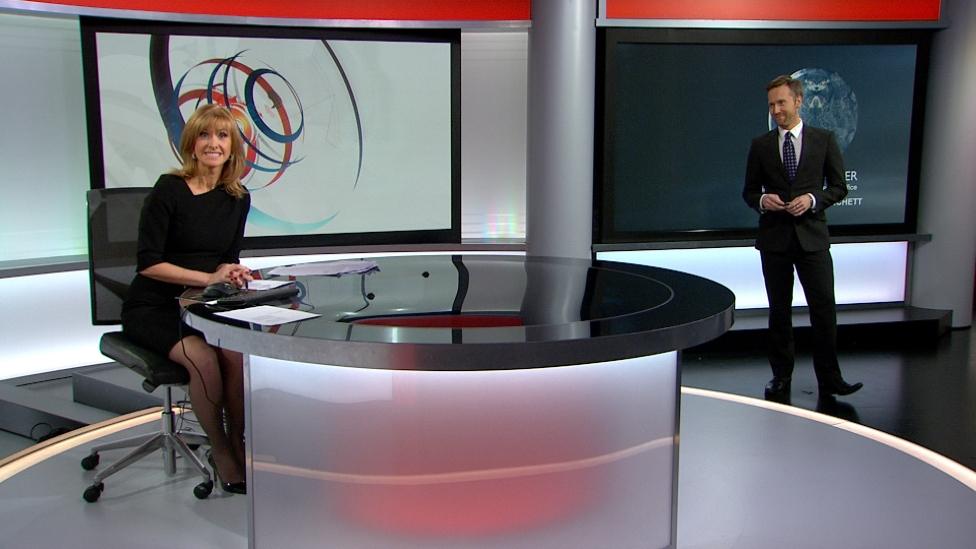
- Published17 February 2016
